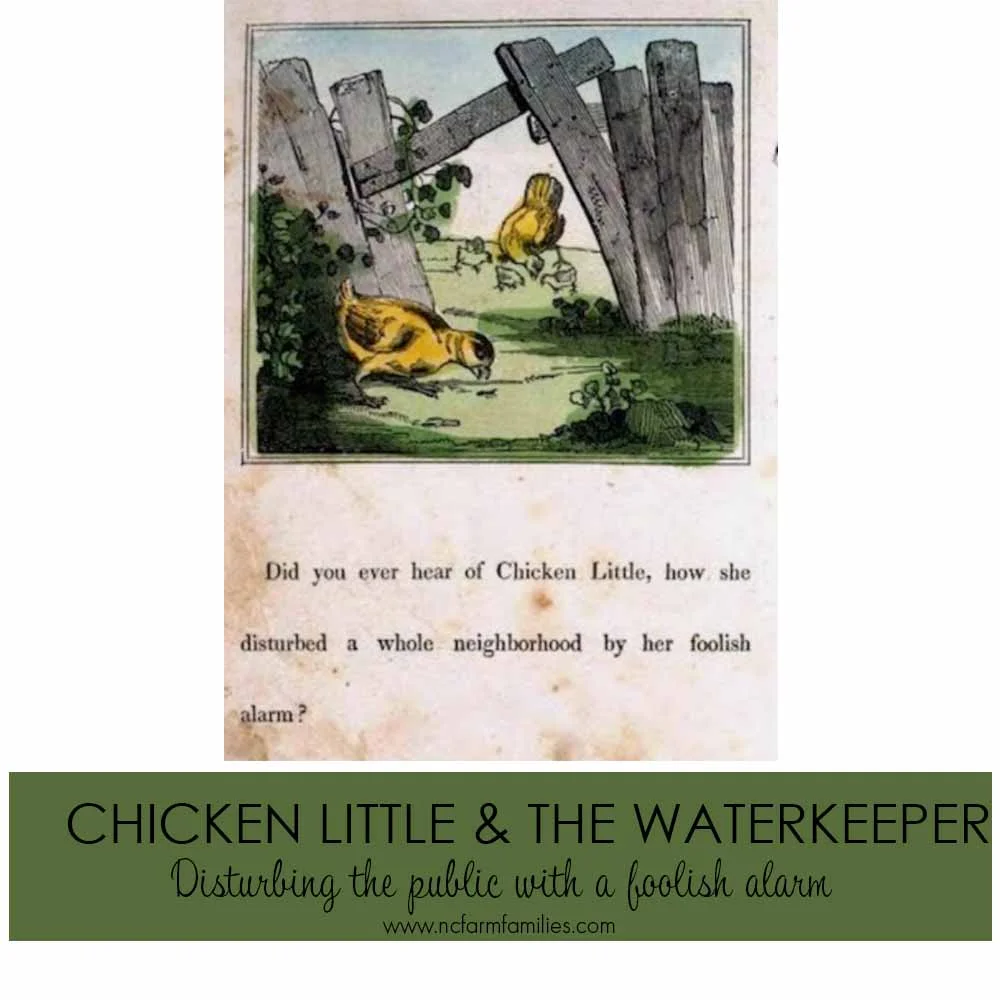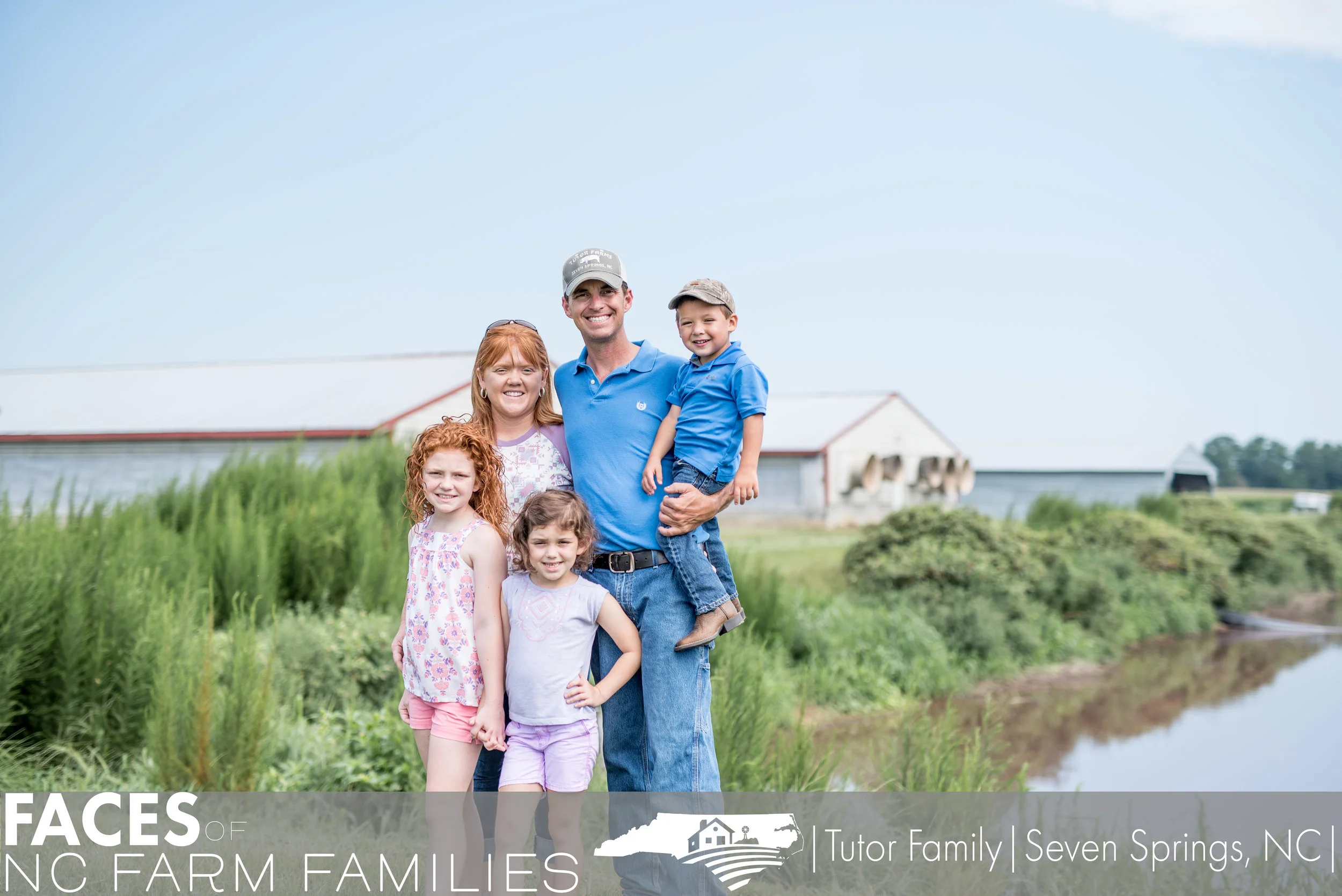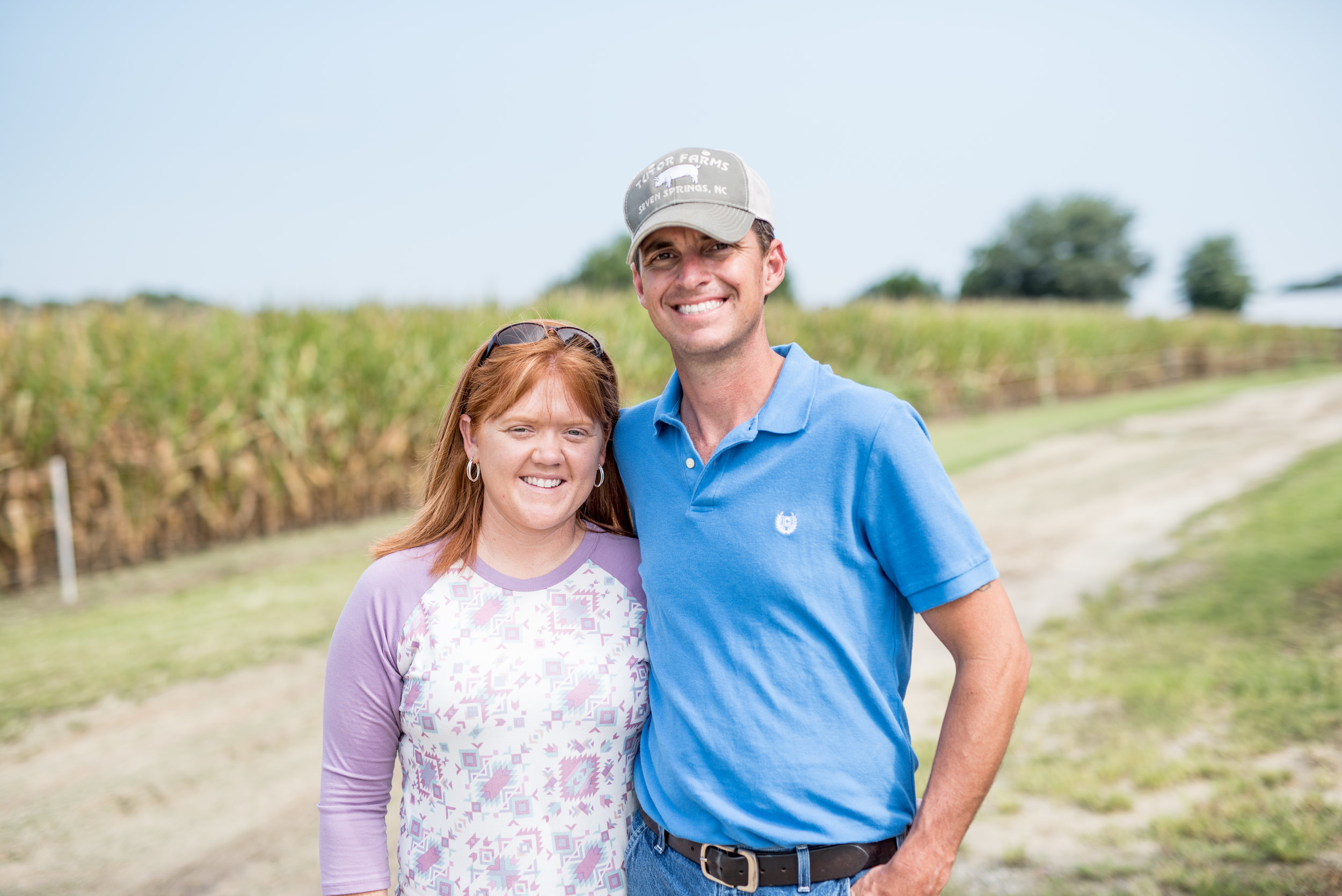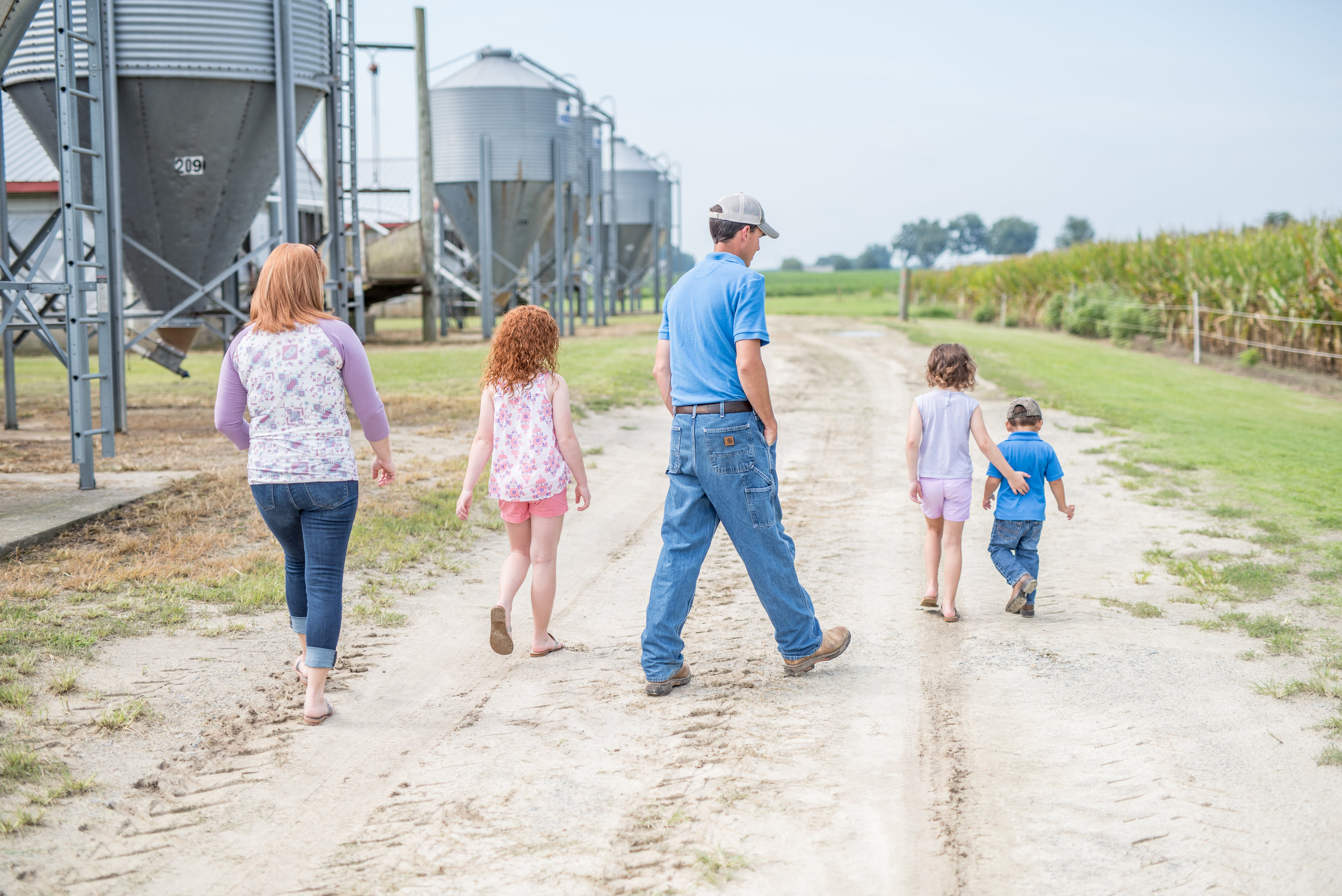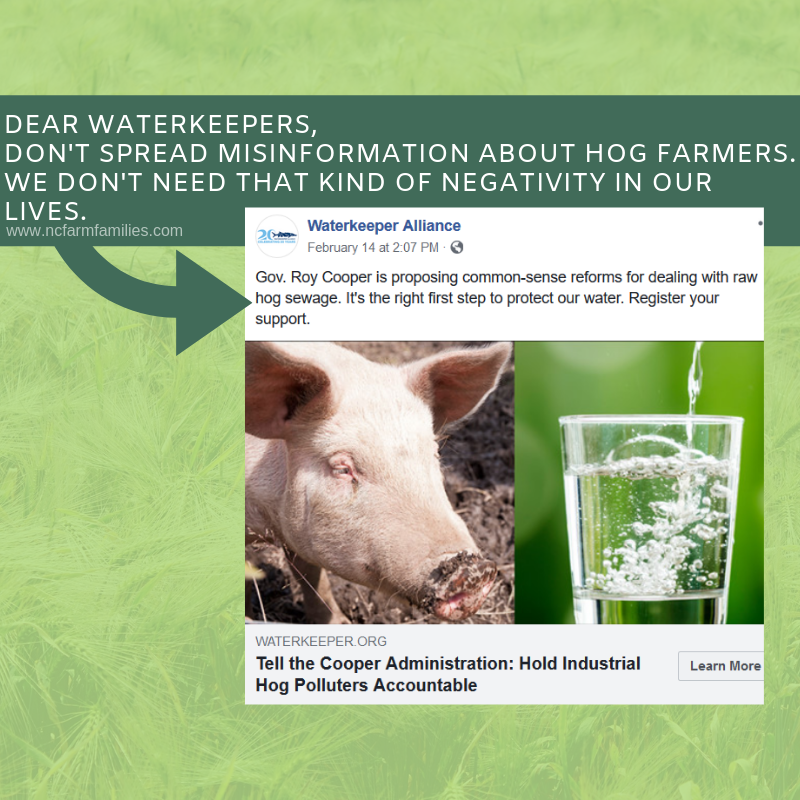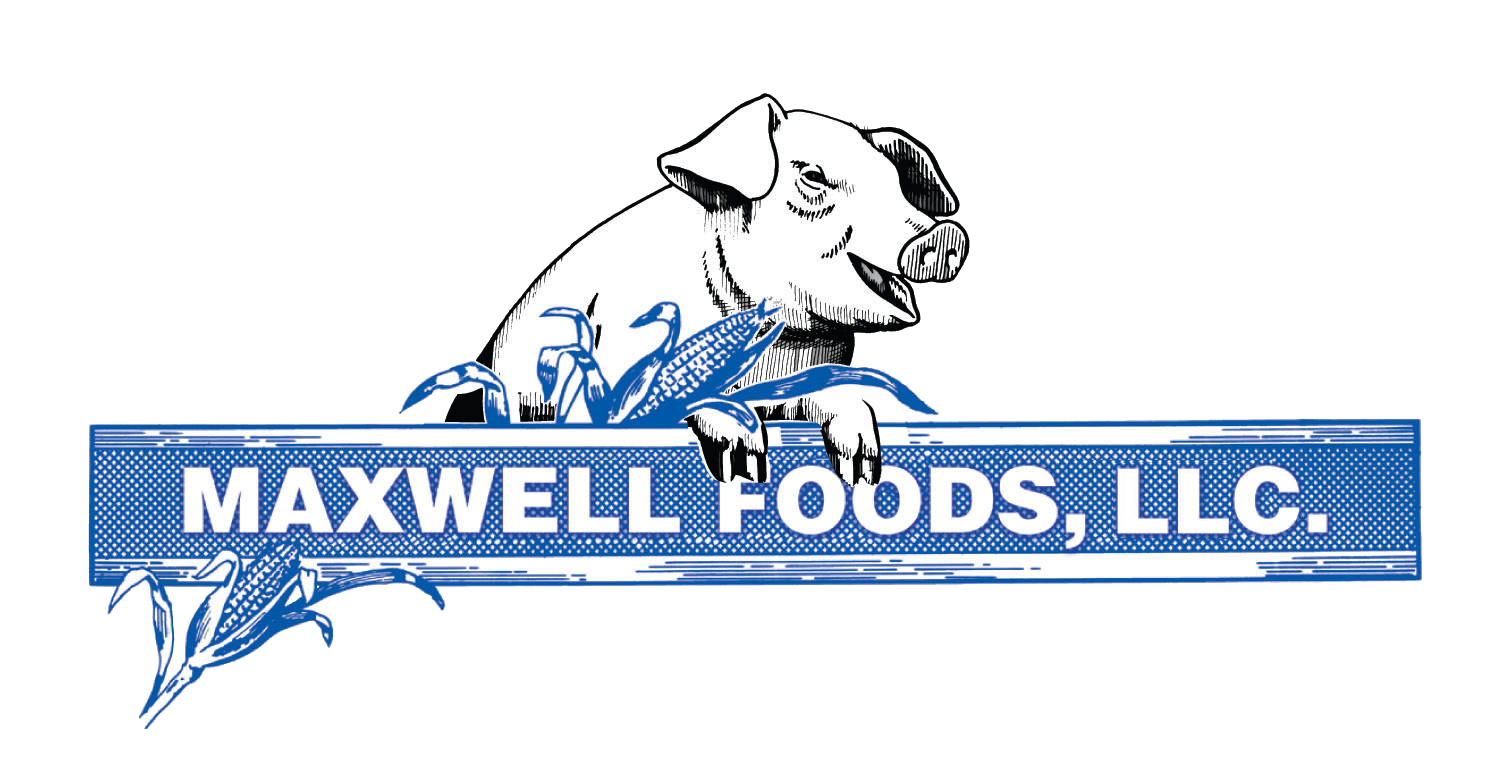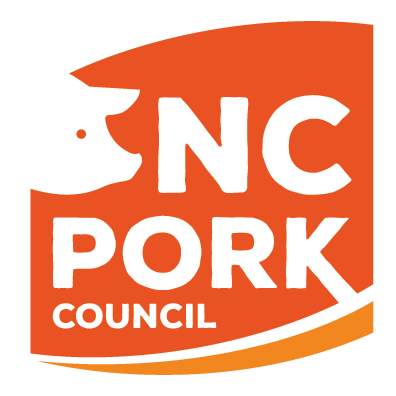Chicken Little and the Waterkeeper
An acorn must have fallen on the head of Waterkeeper Dana Sargent during Hurricane Florence. Because ever since the storm first began approaching North Carolina in September, the Waterkeepers have been running around screaming that the sky is falling!
Or, in their words, North Carolina’s family farmers are destroying our environment with toxic waste.
When an acorn landed on the head of Chicken Little, she famously incited a panic. As one telling puts it, “she disturbed a whole neighborhood by her foolish alarm.”
That sounds familiar.
The Waterkeepers would like you to believe that every lagoon in eastern North Carolina is overflowing with hog manure. In a recent column in The News & Observer, Sargent and the Waterkeepers said that “hog waste literally blanketed huge parts of the state and fouled our drinking water” during Hurricane Florence.
And The News & Observer editors didn’t think twice about publishing such nonsense.
Perhaps they need a refresher on the moral of the Chicken Little story: Don’t believe everything you hear.
After all, this isn’t the first time the Waterkeepers have made blatantly false claims about the impact of Hurricane Florence. Right after the storm, they proclaimed there was “insanely toxic” contamination found near Duke Energy’s coal ash ponds in Wilmington.“
Hurricane Florence Unleashes Toxic Coal Ash,” blared Earthjustice. And The News & Observer duly reported the news: Environmentalists say Cape Fear ‘insanely toxic’, repeating the Waterkeeper’s claims that arsenic levels were 71 times higher than the state safety standard for water quality.
What happened next? The state’s Department of Environmental Quality had to set the record straight, explaining that flooding from Hurricane Florence “did not contaminate the Cape Fear River,” as The N&O reported.
DEQ Secretary Michael Regan had to do the exact same thing in response to concerns about hog lagoons during the flood.
“We are really focused on our wastewater treatment facilities because there are probably orders of magnitude more human waste that has escaped these wastewater treatment facilities than what has escaped these hog lagoons,” he said.
Yet, the Waterkeepers continue to ignore the facts and continue to make the same false claims against our family farmers.Here are two relevant facts from Hurricane Florence that aren’t in dispute:
Despite eight trillion gallons of rain and the record-shattering floods that followed, more than 98% of North Carolina’s lagoons worked exactly as intended and suffered no significant impact from Hurricane Florence.
Municipal wastewater treatment plants spilled tens of millions of gallons of human waste into our rivers, creeks and stream when they were overwhelmed by the floodwaters. And human waste poses significantly higher risks than animal waste (thus the concerns shared by the state’s top environmental official).
The Waterkeepers have no credibility left. They keep screaming that the “sky is falling!” and the facts keep proving them wrong.
Years ago, another activist group issued a report claiming that the Neuse and Cape Fear rivers were among the ten most endangered rivers in America. The N&O prominently posted that story, too. American Rivers, the group behind the report, later admitted that “the rankings aren’t a scientific assessment of river quality,” but part of a coordinated effort being pushed by the Waterkeepers to influence state lawmakers.
That’s three times they have yelled “the sky is falling!” — and three times they’ve been proven wrong by the facts. How can anyone still believe their claims are credible?The next time a newspaper editor hears a Waterkeeper blasting North Carolina farmers, they should exercise tremendous caution — and ask if an acorn recently fell on their head.
Farming is Hard: Selling a Farm and Holding on to a Passion
The goal of Faces of NC Farm Families is to shine a light on the people behind the food, and to tell the stories of the folks who work hard on their farm. Through this project, you’ve already met several families across the state who farm, and it is time for another feature.
However, this feature is a little different than the others—the family are no longer pig farmers. We received a message from the family, to let us know that they had made the very hard decision to sell their farm. They knew we wanted to feature them in our series Faces of NC Farm Families (we had even already gone out to their farm to take pictures and video), but now, they didn’t own the farm.
After talking with them, we made the command decision to feature them anyway. You see, farming isn’t just a profession, it is a passion. Their passion has not gone away. They are still farmers at heart. Sometimes, though, finances, time, health…LIFE, prevents you from making your passion a profession. With their permission, we want to tell the story of a family who put their hearts into a pig farm, but ultimately decided to sell their farm for the benefit of their family. It is a story of farming, family, and hard decisions. This is the Tutor family story.
April and Kevin Tutor live in the rural town of Seven Springs in Eastern NC. They are parents to three kids—Bailey, Parker, and Shaun. They are also foster parents, opening up their hearts and home to other children. It is through this program that they were able to bring Shaun into their home permanently through adoption. They are involved in their community, home school, hold down careers, and love the rural life. Upon meeting the family, you’ll quickly learn they are genuine people who have a passion for agriculture and a deep love of family.
Kevin and April met on a blind date, and 9 months later were married. They have now been married for 13 years. In 2013, they made the decision to buy April’s dad’s hog farm before it went into foreclosure.
“Because we bought it under those circumstances, we had to pay much more than the value of the farm was worth. It doesn’t cash-flow,” said April.
For the Tutors, the dream of a farm meant taking on quite the financial burden. The farm wouldn’t cash-flow until 2028, and it would take an additional 12 years for the family to make back what they had put into the farm. Those reasons meant that the Kevin and April both had to work public jobs outside of the farm. Kevin worked weekends at Weyerhaeuser while April worked from home as a business analyst and part time doing field investigation.
“A lot of times she’ll fly out Monday night just to fly in on Thursday night in time for me to leave Friday morning. That can be a lot. That can be stressful. That’s probably the hardest part for me is we’re both having to work and juggle the farm and the kids,” said Kevin.
For the Tutors, though, it was important to carry on the land that April’s great grandfather had bought and worked so hard for. They also wanted their kids to have the experience of farm life.
The kids truly enjoyed the farm. Shaun liked to feed the pigs gummy bears as a treat and all of the kids liked to check pigs with their parents and run up and down the farm paths. As much fun as it was, though, the struggles didn’t go unnoticed.
Bailey described how much she loved going through the hogs with her daddy, but she also had some qualms with the farm.
“Some nights when daddy has to go through the hogs, he doesn’t get time to eat with us, so we go ahead and eat without him. Then he comes home, takes a shower, and has to go to sleep because he has to go to work the next day,” said Bailey.
Farming. It isn’t easy or picturesque. It’s hard and demanding. It takes a lot of time and money.
“I feel like sometimes people think that hog farmers make lots of money or farmers get big checks. We have to work for our farm. We really have to work for our farm because it doesn’t cash-flow,” said April.
April went on to talk about how they miss out on many things as a family because of the farm. Beach trips in the summer didn’t happen. If they did go on vacation, Kevin stayed home to watch the farm.
This past November, a friend of the family approached them with an offer for the farm. After much prayer, they decided to sell the hog farm, but keep most of the land surrounding it. Although, thankful they get to hold on to some of the family land, it has still been very difficult to sell the hog farm, something that has been in the family for generations. The decision came down to the current generation, though.
Because Kevin and April had to pay such a steep price for the farm in the beginning, they found themselves working long hours only to come home to work on the farm in their spare time.
“Our kids are growing so fast, and we feel like, even though we home school and are with them all the time, there was no quality time,” said April.
The kids were either with April while Kevin worked or vice versa. They were seldom all together as a family. That was mentally draining for the family on top of the financial burden that the farm was.
The decision to sell wasn’t easy. April put it best when she said, “I have never wanted something so bad and not wanted something so bad at the same time. Farming is hard.”
That it is April. That it is.
Today, the Tutors still live the rural life. They are still family farmers at heart. They still live near the pig farm. Family and farming are often intertwined, but sometimes, you have to make a decision between the two. The Tutor’s story is not every farmer’s story, but it is also not a rarity. Many farmers have to take off their farming hat for one reason or another. April’s hope was that perhaps their story would shed light on the fact that hog farming isn’t always a big pay day. Farmers aren’t always rich. Farming is hard.Thank you Tutor family for allowing us to tell your story.
Thank you for your passion for family and for farming.
Photos by: M. See Creative
Waterkeepers up to their old tricks:Misleading the public about hog farmers
The Waterkeepers are up to their old tricks once again. They have recently published a petition, pushing folks to “tell the Cooper administration: Hold industrial hog polluters accountable.” The petition was accompanied by a short article that discussed cesspools, dumping waste, pollution, and a lack of transparency by hog farmers.
The Waterkeepers chose to frame the General Permit and hog farmers in such a way that left us confused and a bit offended. So, we’d like to clarify a few things:
Hog farmers are not opposed to the General Permit. We understand that regulations are important. We do, however, have concerns regarding some of the requirements. Those concerns do not mean we are opposed to regulations, rather we just want to ensure that the permit has sound and sensical requirements that benefit both hog farmers and the community.
Hog farmers already regularly report management of swine manure to the state, unlike what the Waterkeepers say.
The Waterkeepers say it is “time for more oversight, accountability, and transparency.” Hog farmers have had state oversight for years. We’ve been held accountable by the state, trade organizations, and the community. And, as for transparency regarding manure management…we’ve given explanation after explanation of how it works. We’ve written blogs, aired TV commercials, and invited people to farms. Just last week we published two blogs discussing lagoons. No transparency?
If the Waterkeepers are so concerned with the pollution of water, why do they only focus on hog farmers? Why do they continue to ignore sewer spills which were far worse than hog farm spills during the horrific Hurricane Florence?
We could go on and on about the discrepancies the Waterkeepers post, but we think you get the idea. They love to frame hog farmers as careless polluters. The truth is, we aren’t. We care.Publicly, we’d like to say, that we appreciate the Waterkeepers offer to be our accountability partner, but respectfully decline. We prefer partners who don’t spread falsehoods about us. We don’t need that negativity in our lives.
Farmkeepers Blog
The Farmkeepers is the official blog of NC Farm Families. It is here that words will flow, our voice will be heard, a stand will be made, and the farm families of North Carolina will be protected. In these posts, we'll set the record straight. You'll see the faces of the families who feed us. Here, you'll receive all the updates and news. It is here that we will fight for farmers and be the keepers of the farm in NC. We hope you'll join us. Follow along on social media and by joining our email list.

